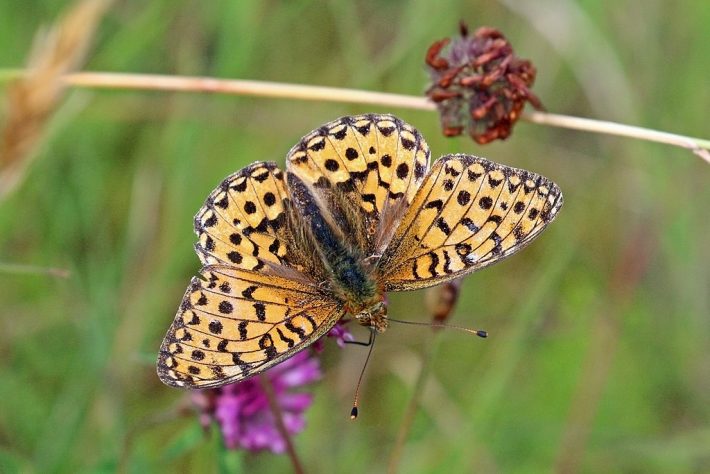Climate change causing 60% of plants and insects to fall out of synch
Seasonal timings of plants are advancing an average of four times faster than insects, throwing key interactions like pollination out of synch. This is according to new findings from researchers at the University of Oxford and Chinese Academy of Sciences that will be presented at the British Ecological Society Annual Meeting in Belfast.

A study of over 1,500 species of herbivorous insects in Europe, spanning 34 years of data, has found that 60% of insects are already struggling to keep up with the plants they rely on because climate change is advancing key seasonal timings (phenology), such as plant blooming or insect emergence, earlier in the year, at different rates.
As climate change intensifies, plants were found to be adjusting their seasonal timings four times faster than insects in response to changing environmental conditions.
Butterflies and moths are among the most sensitive group of insects to this mismatch in seasonal timings. For example, the dark green fritillary is struggling to keep up with the advancing phenology of plants that the caterpillar stage relies on, such as dog-violet and marsh violet.
Other insects that experienced significant asynchrony with the plants they depend on were the silver-ground carpet, common yellow-faced bee, the Eurasian bee beetle and the bishop’s mitre. In general, the researchers found that the phenology of insects that lay one brood of eggs each year was more intensely affected than those that lay multiple broods.
Synchrony between key biological activities, such as time of growth and reproduction, in plants and insects is critical for maintaining balanced, healthy ecosystems and food production.
If you think about what you had for breakfast this morning, all of it came thanks to nature and much of it thanks to insects.
Yanru Huang, a PhD student at the University of Chinese Academy of Sciences and University of Oxford, who will be presenting the research at the BES Annual Meeting said: “The mismatch between plant and insects phenology we observe in our study poses a significant threat to both ecosystems and our livelihoods. We could soon see the extinction of species that depend on each other and even the collapse of the food-web network.”
Dr Roberto Salguero-Gómez, Associate Professor in Ecology at the Department of Biology University of Oxford and senior author of this work, said: “A mismatch in seasonal timings doesn’t just impact biodiversity, but us too. Given 84% of the crops in Europe directly depend on insects for pollination, it’s clear how much we depend on the ecosystem services that insects provide.
“If you think about what you had for breakfast this morning, all of it came thanks to nature and much of it thanks to insects. If you had berries, almonds, a tea or a coffee, that wouldn’t have happened without insect services. So there goes your entire breakfast.”
In the study, the researchers used data from Global Biodiversity Information Facility database. They examined how climate change is affecting species in Europe because this region is particularly well monitored by both ecologists and the general public, thus allowing for a study at large spatial and temporal scales. They included the four most studied groups of insects Hemiptera (true bugs), Hymenoptera (e.g., bees, ants), Coleoptera (e.g., beetles), and Lepidoptera (e.g., butterflies and moths).
Yanru Huang added “We hope our study further increases awareness about the ways in which climate change is destabilizing natural systems. Recent years have seen rapidly declining insect diversity in Europe, along with increasing impacts from climate change on our environments. We would like our research to promote strategies to confront these challenges.”
Yanru Huang will present the work at the British Ecological Society annual meeting. This work is currently unpublished. This conference will bring together over 1,300 ecologists to discuss the latest breakthroughs in ecology.
BES 2023
The British Ecology Society Annual Meeting will take place at Belfast ICC from 12 – 15 December 2023. The conference will feature the latest ecology and the environmental research, a public event on navigating the climate and biodiversity crisis on the island of Ireland and keynote talks from eminent ecologists and conservationists.
Like what we stand for?
Support our mission and help develop the next generation of ecologists by donating to the British Ecological Society.